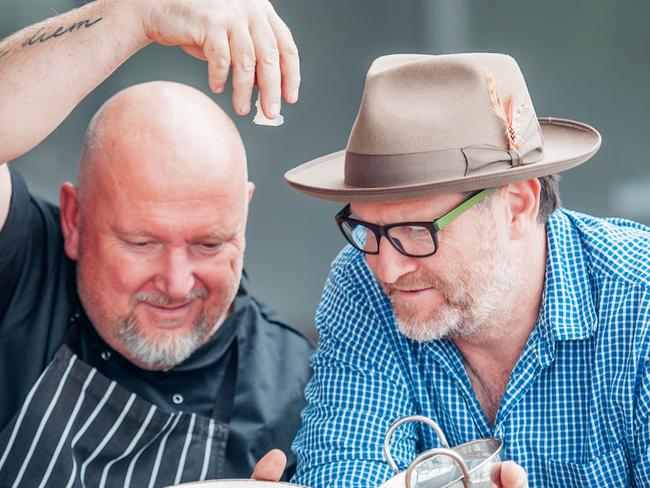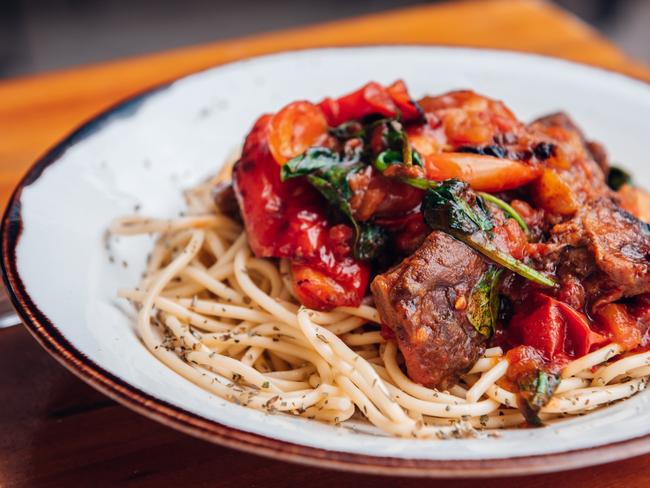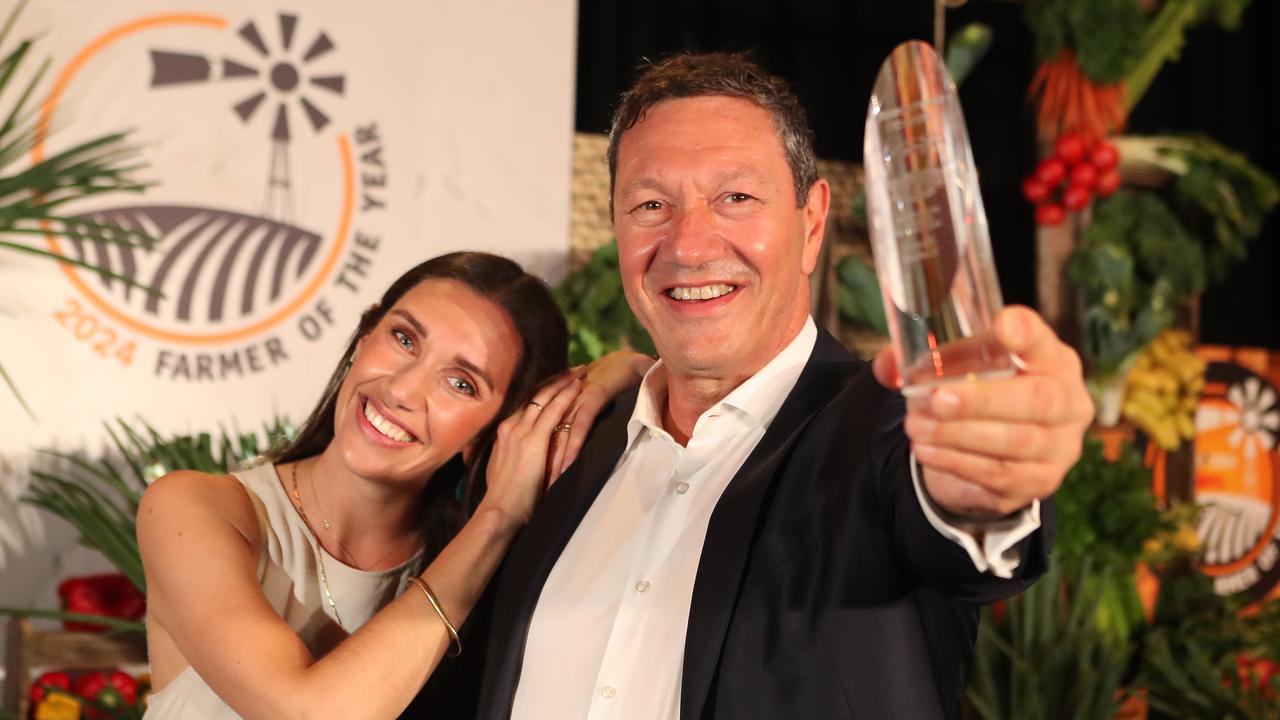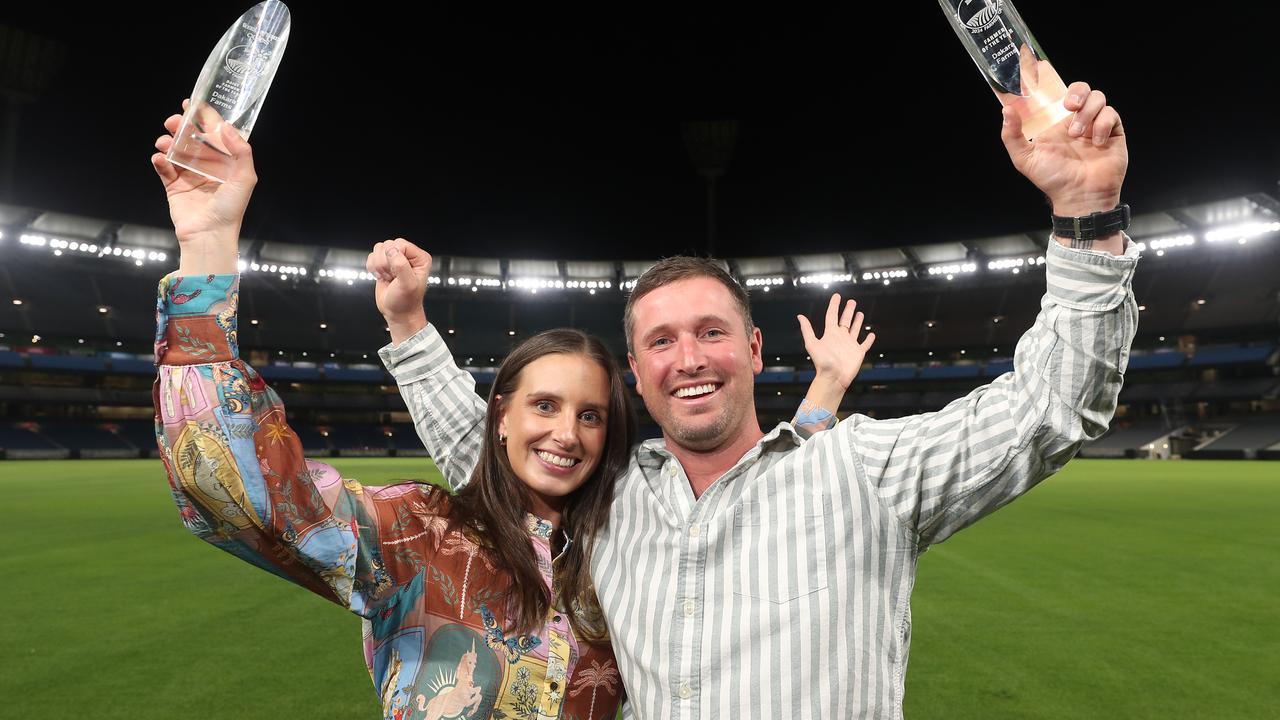Gippsland Wild Foods: Deer damage offset on venison menu
A chef and professional game hunter have sights set on feeding the nation while solving a huge environmental and agricultural threat.

For second-generation chef Dominic Britten, fresh food is king but environmental sustainability is what reigns supreme in his new business that aims to “eat the problem” of feral deer.
Launched last year, Gippsland Wild Foods at Bruthen harvests deer in East Gippsland and supplies fresh venison to local restaurateurs who can’t get enough of the uniquely lean product, particularly as it fits the growing customer integrity demand for ethically harvested and sustainably sourced food.
The Invasive Species Council estimates the feral deer population in Australia to be up to two million with Victoria likely home to half of those.
“As everyone knows, deer are bad for the environment. They eat all the new plants and trees, they flatten fences and eat pastures,” Dominic said.

THE FIRST STEP
Deer had been on Dominic’s radar well before starting Gippsland Wild Foods.
“Deer was standard fare in New Zealand in the late 1980s and ’90s,” Dominic said.
“But when I came to Australia in 1997 I found farmed venison to be price prohibitive – you couldn’t afford to put it on your menu.
“Then when we moved to Gippsland in 2014 there were wild deer everywhere. They would wander in and out of our property at Wiseleigh, the local farmers told me the deer were eating pastures and wrecking fences, the local cops said something needed to be done about the deer as they caused accidents on the road.
“It was then I thought, we can eat this problem and I launched headlong into it. Gippsland Wild Foods was born.”
TAKE THE SHOT
A hunter himself, Dominic initially envisaged killing his own deer but when completing the Game Harvester Skill Set Course at Warragul he met a host of professional hunters already set up with game harvesting vehicles and equipment that was Prime Safe compliant and accredited.
“Given they had all that experience already I decided it was mad for me to set up a vehicle and instead I would focus on the sales and marketing side of it,” Dominic said.
“I only need one shooter at the moment but eventually I’d like to hire everyone out there.”
There are four species of deer in Victoria including Red, Fallow and Hog deer but the most prevalent is Sambar.
“I take as much as my hunter can shoot and his vehicle can hold 10 to 12 a night depending on the size of the deer, which for Sambar can be anywhere from 30kg to 200kg,” Dominic said.
“At the moment you can only kill on private land but it is pretty reliable that the deer come out of public land on to private land just after dark.”
ETHICALLY HARVESTED
To complete the Game Harvester Skill Set course, hunters must pass a firearms proficiency test to prove they can kill an animal humanely with one shot.
“The abattoir do an inspection once the animal arrives and they won’t accept anything that isn’t headshot,” Dominic said.
“You have to leave the heart, liver and lungs intact and that is what they inspect for any sign of disease.
“The animal is then skinned, cleaned and washed and they make sure there are no contaminants – largely hair. The abattoir does all the boning and packaging for me.”
The processing, cleaning and stamping takes 24 to 48 hours with 300kg to 400kg of product currently produced each week.
NOSE TO TAIL
Dominic has a Prime Safe-accredited meat transport vehicle that he uses to deliver the meat direct to a dozen restaurants across Gippsland and East Gippsland, including Northern Ground at Bairnsdale, The Local at Metung, Hogget Kitchen at Warragul, Woodside Beach Hotel and The Long Paddock at Lindenow. He also supplies Banksia Restaurant at Pambula, on the NSW south coast.
“The chefs are absolutely loving it,” Dominic said.
“Trevor Perkins at Hogget Kitchen – he buys the whole animal and it is nose to tail, he does everything with it,” Dominic said.
“Rob Paget at the Woodside Hotel does things like ragu with pappardelle, scotch egg and he’s had venison schnitzel on the menu and I don’t think he could take it off – there would be outrage. Rob Turner from Northern Ground does a phenomenal dish with back strap – he buys the neck or shoulder to slow cook.
“At this stage, I just want to give it to people I know are going to do something great with it. I want customers to really love it.”
“People often worry it might be too strong but if you eat beef, you’ll eat venison,” Dominic said.
“I’ve had the odd hunter say it’s just dog food but they obviously can’t cook and they don’t know what they are doing with the food.
“You just have to know what you are doing with it.”
Paynesville’s Pier 70 chef Ian Pearson grew up in the renowned English hunting district of New Forest where a lot of game meat was eaten so has always had a great connection with venison.
During the bushfires in 2019, Ian volunteered to cook for firefighters at Swifts Creek and discovered the prevalence of deer in the high country.
“I prefer to cook with local ingredients so as soon as I found out that Dominic had legally killed venison, I jumped straight on it and have been using it ever since,” Ian said.
“Because Dominic is getting deer from the local area it is less stressed, the time is perfect between being killed and coming to us. It is always in good condition. It is a consistent quality of meat which suggests to me that the whole process from identifying the animals to be killed, to the kill, then the butchery, hanging and sending to restaurants is all very well done because the meat we’ve had has been exceptional.”

RETAIL SCOPE
As the business builds, Dominic, his wife Tracie and son Arlo, intend to supply more restaurants in Melbourne and open a venison butchery and retail space to educate consumers on the product.
A QR code would take consumers to a YouTube channel to guide them in cooking simple dishes.
“It would be great to have a sausage factory with a range of gourmet venison sausages featuring the flavours of Gippsland such as Tambo Valley honey or Lightfoot Shiraz,” Dominic said.
“We would also love to get into making smoked products like chorizo and salami and with the slow cooker technology available today – the things you can put into sous-vide bags are limitless.
“There is so much scope for the product locally as well as export markets. If you can show people how to cook it – it’s a protein source that is untapped. It is healthy and lean, rich in iron and versatile and I think there is a really big future for the product.
“The state government should really sit up and listen to how strong commercial harvesting could be.
“It’s crazy to do all this aerial culling. Rather than flying around in helicopters and shooting and missing and even poisoning, we should eat the problem.”




